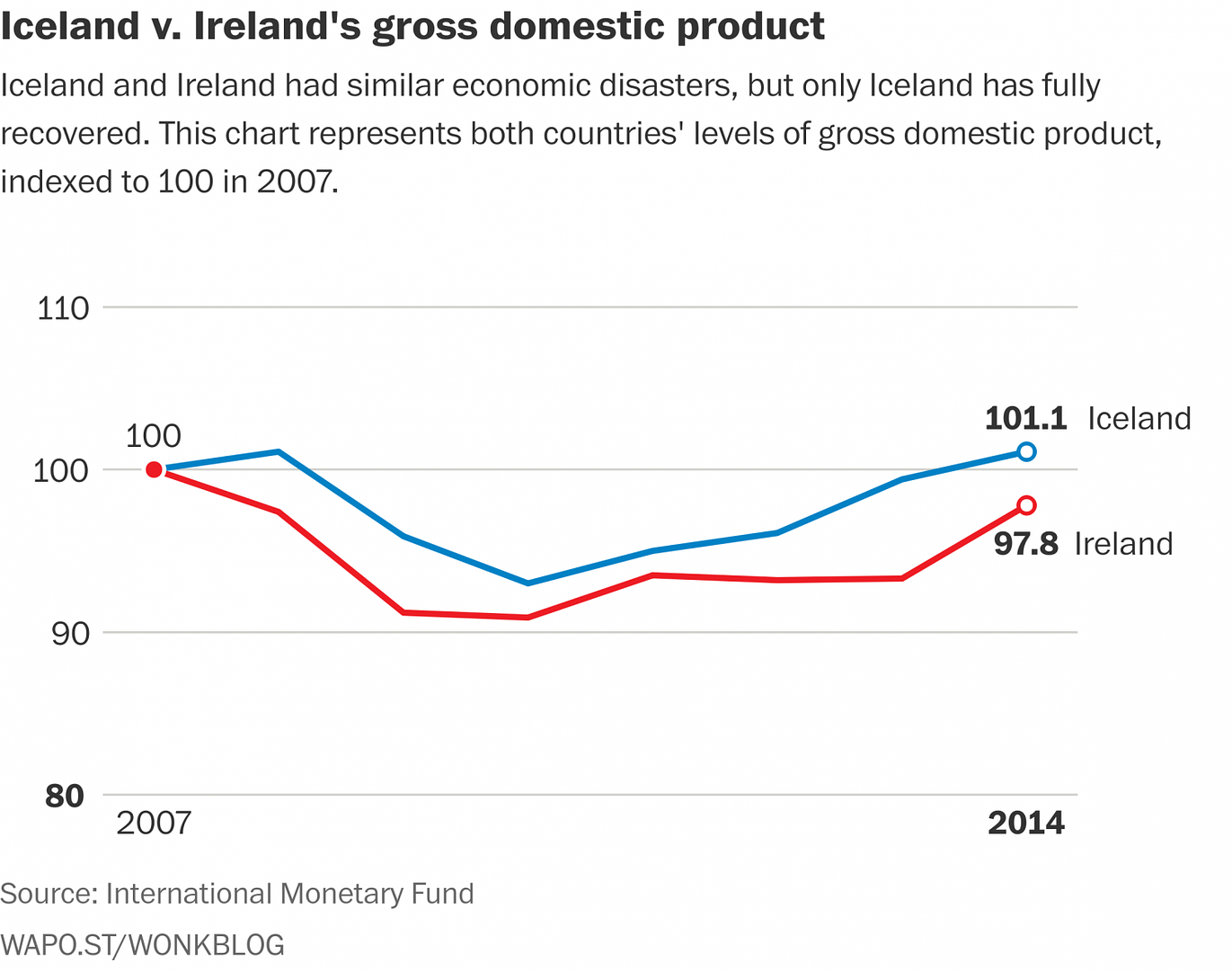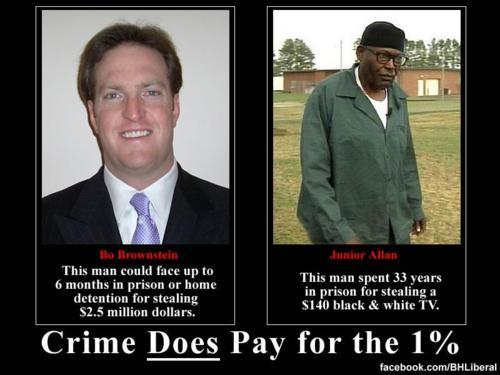American Plutocracy: Who's Punished And Who's Not
Lock up the privileged white boys.
And do not expunge their felony record.
Ever.
OCT 22, 2015
Iceland sentences 26 bankers to a combined 74 years in priso
178 Comments / 178 New
When Iceland's President, Olafur Ragnar Grimmson was asked about his country's recovery from the 2008-2009 financial crisis, he famously said:
“We were wise enough not to follow the traditional prevailing orthodoxies of the Western financial world in the last 30 years. We introduced currency controls, we let the banks fail, we provided support for the poor, and we didn’t introduce austerity measures like you’re seeing in Europe.”You can add one other item to that list: Iceland threw bankers into jail when they broke the law.
Unlike the Obama Administration Justice Department, the Icelandic Supreme Court and Reykjavik District Court have found the five top bankers from Landsbankinn and Kaupping — the two largest banks in the country - guilty of market manipulation, embezzlement, and breach of fiduciary duties (i.e. fraud).
Unfortunately, the maximum sentence for these crimes is six years, but Iceland's Supreme Court is currently hearing arguments for expanding these sentences.
Unfortunately, the maximum sentence for these crimes is six years, but Iceland's Supreme Court is currently hearing arguments for expanding these sentences.
Not one single American banking executive has been charged with a crime related to the 2008 crash.
Some may say that it's unfair to compare Iceland to the United States because of the difference is sizes and stuff.
So let's compare it to Ireland, a country that did "follow the traditional prevailing orthodoxies of the Western financial world" and socialized all those private banking losses and paid for it with brutal austerity.

So let's compare it to Ireland, a country that did "follow the traditional prevailing orthodoxies of the Western financial world" and socialized all those private banking losses and paid for it with brutal austerity.

Ireland is often used by the banking community as an example of what a country should do in a crisis.
Meanwhile in America, the Justice Department says it no longer subscribes to Too-Big-To-Jail.
However, what exactly does that mean?
However, what exactly does that mean?
But the broader point is that a criminal guilty plea no longer comes with the expectation that it will destroy a bank. Instead it comes with the expectation that the bank's business will continue exactly as usual. A guilty plea is just the particular sort of document that you sign before handing over a big check to the Department of Justice, the way a deferred prosecution agreement used to be, and the way a civil settlement is what you sign before handing over a big check to the SEC. The names change, but the sequence of actions doesn't:Yeh, tough on white-collar crime, huh?

No comments:
Post a Comment